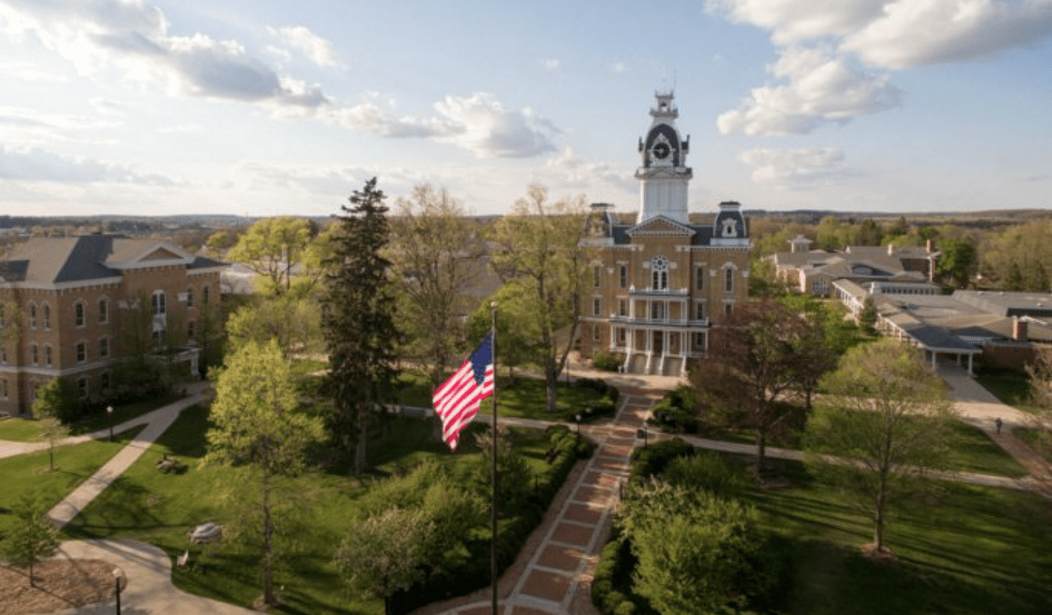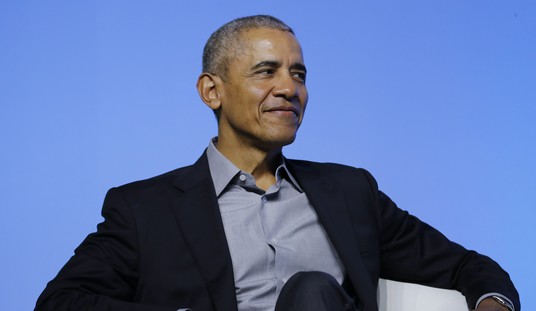The “Tax Cuts and Jobs Act,” the Republican tax reform proposal, includes a new tax on the endowments of wealthy private colleges. Democrats have complained about an alleged “Hillsdale exemption” to this tax, but a source in the U.S. Senate involved in amending the legislation explained to PJ Media what really happened and why the term “exemption” is a dangerous misnomer. The college’s president also accused Senate Democrats of “slandering” the college, claiming that it refuses government funds in order to discriminate against minorities.
“One college, Hillsdale College, has been exempted from taxes on colleges with large endowments,” Senate Minority Leader Chuck Schumer (D-N.Y.) declared. “Hillsdale College is supported by the DeVos family, one of the largest contributors to the Republican Party. A specific provision, just like an earmark, was slipped into the bill.”
Schumer argued the provision exempted “a single wealthy college, the pet project of a billionaire campaign contributor to the Republican Party,” referencing the family of Betsy DeVos, now secretary of education. He called this a “metaphor for the whole bill.”
https://www.youtube.com/watch?v=3AcaK3qCQ7c
The Democratic leader’s remarks were entirely false. Hillsdale is not a “pet project” of the DeVos family. The “exemption” would have applied to seven colleges, not one. Perhaps most importantly, it was in keeping with the spirit of the new tax, not a special carve-out.
The Republican tax reform bill introduces a new tax into the tax code — a 1.4 percent excise tax on the “net investment income” from private university endowments. Sen. Pat Toomey (R-Pa.) sponsored an amendment which would have removed Hillsdale from the colleges subject to the tax — but not as a carve-out.
“The amendment would provide that colleges that don’t receive subsidies would not pay taxes on endowment,” Dr. Larry Arnn, president of Hillsdale College, told PJ Media in an interview. Since this was part of “the imposition of a tax that never existed before,” it would not be an exemption. An exemption, Arnn clarified, “would be if you had a tax and let somebody out of it.”
A background source in a Republican Senate office involved with the “Hillsdale exemption” amendment explained the difference. In laying out the exact type of college or university subject to the new excise tax, the original Senate bill explicitly stipulated that the tax only applies to a private institution eligible for funds under Title IV of the Higher Education Act of 1965, with an endowment of $250,000 or more per student, and with at least 500 students.
The source suggested that whoever drafted the original tax did not consider the fact that some colleges across the country that are eligible for Title IV funding would not actually accept that funding from the government.
At least seven colleges, including Hillsdale, do not accept federal funds, in an attempt to preserve their liberty. These include Grove City College, Christendom College, Patrick Henry College, Pensacola Christian College, Gutenberg College, and Wyoming Catholic College. Grove City College did not respond to multiple requests for comment.
The Senate source told PJ Media that the excise tax was not intended to apply to schools that refused federal funds. After all, a school that rejects federal funding is already saving the federal government money.
“The spirit of that provision was to target wealthy private colleges like Harvard and Yale and Princeton, that have enormous endowments and are still stuffing their pockets with federal money,” the source said. “It’s not a blanket endowment tax on all universities. It’s very targeted.”
Sen. Toomey introduced an amendment to the tax bill that would have explicitly stated that only wealthy private colleges that receive Title IV funding would be subject to the new tax. “It was a technical fix, a clarification amendment,” the Senate source told PJ Media. “Chances are good that they didn’t imagine there are a very small handful of schools that are eligible but are not taking the money.”
The amendment would likely have gone unnoticed if a source had not leaked the “manager’s package” — a list of amendments Republicans would prioritize — to the press and to Democrats. This leak drew Democratic attention to the amendment, and inspired backlash against it.
The Toomey amendment would indeed have only had a concrete impact on Hillsdale College, since none of the other institutions rejecting Title IV funding had endowments higher than $250,000 per student. (According to the Hillsdale Collegian, the school’s newspaper, the current endowment is $548 million, or approximately $364,000 for each of the school’s 1,507 students.)
This did not make the Toomey amendment a Hillsdale carve-out, however.
Arnn, Hillsdale’s president, told PJ Media he was against the endowment tax originally. “I don’t think that something they’re subsidizing to the tune of 35 or 40 percent of [college] revenues, they ought to turn around and tax that thing,” he said. “Otherwise the government just gets deeper and deeper into everything.”
“I just urged them to rethink the whole idea,” Arnn recalled. But then someone suggested a change like the Toomey amendment — “what if we just exempt colleges that don’t take government money?” Arnn said he thought that idea “seems fair.”
The Hillsdale president further noted that “a lot of government money goes for need-based aid.” Most of Hillsdale College’s endowment goes to that same purpose, he said.
According to Patrick Flannery, vice president for finance and treasurer for Hillsdale, an overwhelming majority of the endowment supports academics. About half is spent on scholarships, a quarter goes to academic programs, and 15 percent props up faculty chairs. Only 0.2 percent goes toward “nonacademic” purposes, although Flannery argued that the awards this amount pays for are still “academic in nature.”
Hillsdale spends about 5 percent from its endowment annually, Flannery reported. This differs from the 3-4 percent average spent at most other colleges and universities, the treasurer said. The endowment tax could cost the college the equivalent of 27 full-tuition scholarships each year.
“We are paying for our need-based aid with our endowment. There was an obvious reason why we and everybody like us should be exempted,” Arnn explained.
The Toomey amendment passed, but then Sen. Jeff Merkley (D-Ore.) sponsored an amendment to reverse it. Since some Republicans thought the amendment was a carve-out for Hillsdale College, Merkley’s amendment passed, eviscerating the original purpose of the tax.
The anonymous Senate staffer blamed Toomey himself for this failure.
“My view is, if a college chooses to forego federal money and the students that attend have to find their own way to get in, it is diminishing the burden that that college would otherwise impose on the taxpayers,” Toomey said in defense of his amendment.
“And so it’s perfectly reasonable in my view to exempt such a college from the tax on endowments that we’re applying generally,” the senator added (emphasis added).
In these remarks, Toomey himself presented the false view that this was a special exemption to a general tax, rather than a procedural fix to make sure the tax did what it was intended to do.
The Senate version did make one further change to the endowment tax, however. An amendment raised the threshold to $500,000 per student — a cap that would exclude Hillsdale College from the tax. While the House of Representatives passed the same tax with a $250,000 per student cap, the conference bill — which will be voted on by both chambers — raised the cap to $500,000.
While this higher cap has the same effect of keeping Hillsdale out of the list of taxed colleges, it does so at a much greater expense to the government, as it removes scores of other wealthy colleges from the tax’s purview as well. If the Senate source is to be believed, this also twisted the purpose of the endowment tax.
As for Reid’s claim that Hillsdale is a “pet project” of the DeVos family, Dr. Arnn firmly rejected that notion. “A lot of people support Hillsdale College,” he told PJ Media. “It’s not dependent on any one supporter, and certainly not that one.”
“Although we admire the secretary of education very much,” the president added.
Arnn also addressed another false claim about Hillsdale College. On the Senate floor, Merkley claimed that Hillsdale “quit taking federal funds because of discrimination.”
“That’s just a slander,” the president told PJ Media. Merkley’s comment suggested that Hillsdale College rejects federal funding in order to discriminate against racial minorities. In reality, Hillsdale was one of the few colleges to admit men and women of all races back in 1844.
Indeed, Arnn recalled a meeting of the Board of Trustees in the 1960s in which a man suggested “that we should start taking federal money because this requirement that we should not discriminate was Hillsdale College’s original policy.”
“We had been colorblind and welcoming of all races from day one,” Arnn declared. He added, “I would demand an apology from Merkley if I cared about what he thought.”
Despite the convoluted way in which the current tax bill avoids taxing Hillsdale’s endowment, the college’s president said he personally — not in his position as Hillsdale’s president — supports the bill.
“You’ve got to pass this thing,” Arnn told PJ Media. “Even if this stupid thing is in it, you’ve got to pass it.”
The president also attacked the “assumption that you have to pay for a tax cut somehow.” Rather, he argued that “all the money the government has and ever can have is produced in a private economy, so if there is more money in that economy there will be more growth.” A growing economy would mean increased tax revenues, even if rates were cut, Arnn claimed.
The so-called “Hillsdale exemption” is less about giving a special favor to a DeVos family “pet project” and more about keeping schools that refuse Title IV funds off the list of colleges subject to the already narrowly-tailored endowment tax. Hillsdale is still safe from the tax for now, but Democrat complaints will cost the federal government a great deal in tax revenues. Go figure.
*Tyler O’Neil is a graduate of Hillsdale College.









Join the conversation as a VIP Member